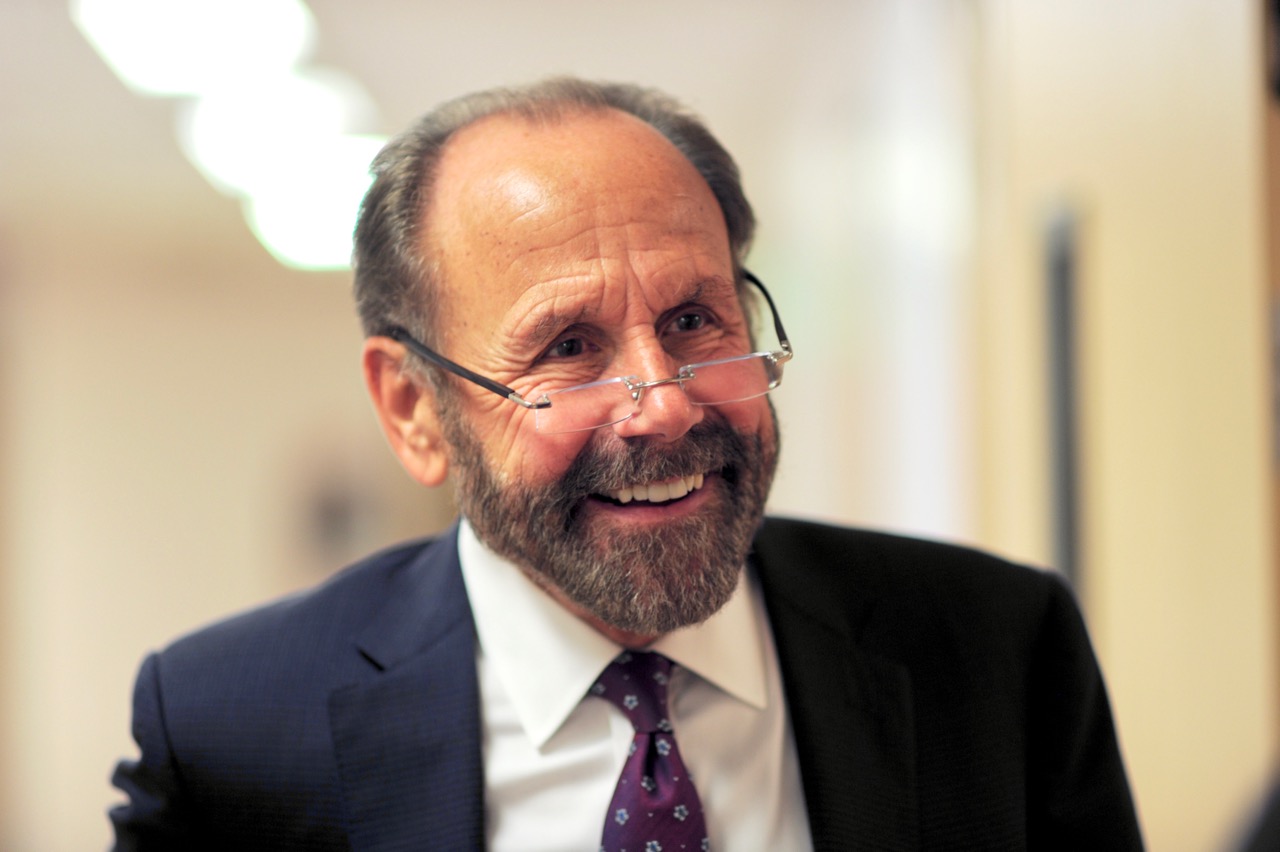
Assemblyman Eduardo Garcia (Photo: Kevin Sanders for California Globe)
New Assembly Bill Would Prioritize Food Sector Workers For COVID-19 Vaccinations
‘In California, nearly every sector has tried to come out as being essential’
By Evan Symon, December 10, 2020 10:06 pm
A bill that would prioritize food supply industry workers, such as farm workers and supermarket workers, for COVID-19 vaccinations was introduced in the Assembly this week.
Assembly Bill 93, authored by Assemblyman Eduardo Garcia (D-Coachella), would specifically prioritize those workers for testing and vaccination.
AB 93 has yet to be fleshed out in more detail, including where in line with other prioritized people would get testing and vaccinations, as well as if certain factors, such as immigration status or employment status, would play a role in prioritization.
Assemblyman Garcia, who introduced the bill earlier this week along with Assemblyman Robert Rivas (D-Hollister), said that he had written AB 93 to help mark field workers and other food sector workers as essential. As these workers are often the first ones handling it, it has been argued that vaccinating them first would help reduce the chances of COVID-19 spread down the food transportation line to grocery stores across California.
“It’s those handling our food that are most exposed to, and spreading, the COVID-19 virus,” said Assemblyman Garcia on Monday. “We want to make sure that as we’ve labeled them essential, that they are part of the first rounds of vaccination.”

“To keep our grocery stores stocked and families fed throughout this pandemic, California’s farmworkers, grocery store, and other critical food sector workers face a heightened risk of exposure. Without question, these essential workers should be prioritized in receiving vaccinations. This measure moves to strengthen legislative safeguards for these vulnerable populations and ensures that we implement an equitable vaccine and rapid testing distribution plan now and in future pandemics,” added Garcia in a statement. “Our frontline workers should be at the front of the line. The stability of our food supply system relies on our ability to provide testing and vaccinations for these essential workers.”
Food sector workers in California, who are predominantly Hispanic, have seen extraordinarily high rates of COVID-19 since the pandemic began in March. Studies have shown that COVID-19 transmission rates have been three times as high for field workers in the state and that a disruption due to a large outbreak could have national impact as California supplies 1/3rd of the Unites States’ vegetables and 2/3rds of the nation’s fruits and nuts.
“Farmworkers are three times more likely to contract COVID-19, yet they are the reason why we can go to the grocery store without worrying whether shelves will be stocked,” noted Assemblyman Rivas on Wednesday. “I’m proud to join Assemblyman Garcia in ensuring our farmworkers are prioritized when vaccines become available for COVID-19 and future pandemics. We cannot protect our food supply without first protecting our agricultural workers.”
Lingering questions over essential worker prioritization
However, despite additional support from local governments and unions over the vaccination prioritization for food sector workers, many others have argued that too many sectors are asking for priority and that health care workers and the most vulnerable populations should get treated first to allow for more assistance to others.
“While it is a good idea to vaccinate farm workers and grocery workers against COVID-19, there are just too many groups saying they need it right now,” Paris Carlyle, a UK-based disease control advisor, told the Globe. “In California in the United States, it does make more sense for food workers to get it simply because agriculture is a big part of the state, but you need to vaccinate those who can help stop this further first, and that means health care professionals.”
“You can make an argument for nearly every sector. In California, nearly every sector has tried to come out as being essential. Everyone from artists to Uber drivers. Right now, in California, the plan is health care workers and vulnerable people, at least for the first rollout. Deviating from that and adding another sector by law is dangerous. If it’s another round, adding millions more people who may qualify is also dangerous, because that means others who are also essential might mean they are out that.”
“The state needs to figure out a definite plan, and leaving it open to massive change could actually hurt people in the process.”
AB 93 is expected to be assigned to a committee in the coming weeks.





I wouldn’t trust any vaccines. In June 1996, African-Americans in Los Angeles learned that the CDC had been conducting vaccine experiments in their communities. Beginning in 1989, the CDC conducted an experiment on nearly 1500 Black and Hispanic infants using an unlicensed measles vaccine without disclosing to parents that the drug was a high-potency experimental vaccine designed to overwhelm the baby’s maternal immune system. The CDC only halted its secret experiment in 1991, when companion clinical trials conducted in Africa and Haiti showed an increased death rate and severe immune-system disorder among female infants who received the vaccine. Those children died within two years after the vaccination. U.S. Congress and Institute of Medicine Confirm Government Licensed and Recommended Vaccines Can Cause Injury and Death. A 2017 study (Morgenson ET. Al. 2017) showed that the WHO’s popular DTP vaccine is killing more African children than preventing the disease.
In 2017 world health organization admitted that strains of vaccines have been a reason for the increasing rate of polio. Many horrific cases were linked to the vaccines in Congo, Afghanistan, and the Philippines. Vaccine strains were responsible for 70% of global polio cases by 2018. In 1986, Congress passed the National Childhood Vaccine Injury Act and codified into law government acknowledgement that federally licensed and recommended and state mandated vaccines can and do unpredictably cause injury and death. The Act created a federal vaccine injury compensation program (VICP) alternative to a vaccine injury lawsuit against drug companies. By 2019, the VICP had awarded more than $4 billion in federal compensation to vaccine injured children and adults. According to the CDC, between 2004 and 2018, the influenza vaccine was less than 50 percent effective preventing circulating strains of influenza for 10 out of 14 flu seasons. In three flu seasons, the influenza vaccine was only between 10 and 21 percent effective.Reason #1 to Never Take a Vaccine: Toxic Ingredients – Formaldehyde, MSG, Antibiotics, GMOs, Polysorbate, Mercury, Squalene, aborted feces, and More…Praying our LORD will be here soon to end ALL this evil! Praying for the millions, and many more, all over the world, who have been injured, or died from these dangerous vaccines, because our governments, and their billion dollar pharma, etc friends love of money. 2 Thessalonians 1:7-9, “And to you who are troubled rest with us, when the Lord Jesus shall be revealed from heaven with His mighty angels, In flaming fire taking vengeance on them that know not God, and that obey not the gospel of our Lord Jesus Christ: Who shall be punished with everlasting destruction from the presence of the Lord, and from the glory of His power;” Isaiah-Malachi, Matthew 24, Luke 21, Revelation 18-22